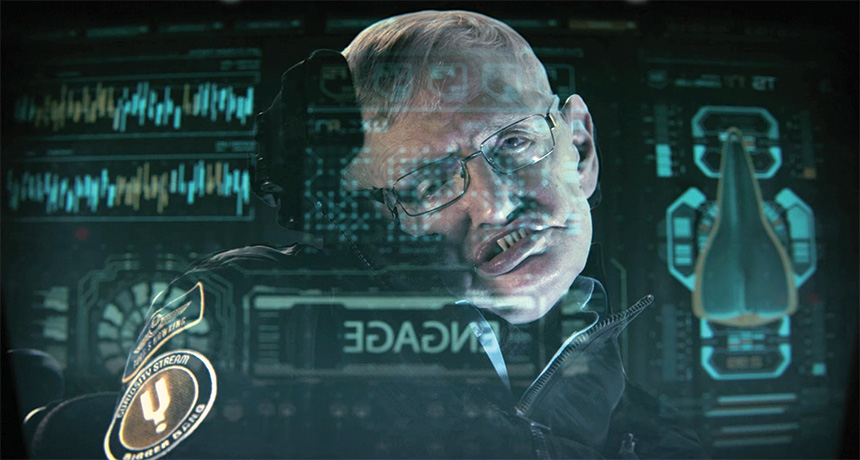CuriosityStream satisfies a science-hungry audience

Take a trip to a black hole with Stephen Hawking as a guide, watch glowing bioluminescent earthworms wriggle away from predators and discover the fascinating mathematics of origami — all while cuddled up in front of a laptop. That’s the promise of the online streaming service CuriosityStream, which offers hefty doses of science for viewers who prefer fact-based documentaries over reality TV, sports and the political bickering that dominate today’s television programming.
CuriosityStream, which recently celebrated its second birthday, operates much like Netflix. With plans starting at $2.99 per month, users can browse more than 1,700 commercial-free programs covering science, technology, history and the arts. The service works on computers, mobile devices and streaming players such as Roku and Apple TV.
CuriosityStream aims to supplement the media diet of science-starved viewers. “When you look at television … there’s very little science on anymore,” says Steve Burns, CuriosityStream’s chief programming officer. Subscribers, he says, “crave the substance that they’ve been missing on TV for so long.”
Along with a slew of documentaries from the BBC and other public broadcasters, CuriosityStream offers more than 600 original programs that you won’t find anywhere else. One standout is David Attenborough’s Light on Earth, in which the naturalist takes viewers on an engaging survey of bioluminescent life, from flickering fireflies and luminous mushrooms to eerily glowing ocean creatures.
Another enjoyable original is Stephen Hawking’s Favorite Places, in which the famed physicist tours a black hole, exoplanet Gliese 832c, Saturn and other cosmic locales. Computer-generated imagery of the turbulent region around a black hole, for example, provides a brilliant visual background to Hawking’s explanations of relevant research. One episode is currently available, and two new ones are slated to go online later in the year.
Some shows are more engaging than others. Another original, The Hunt for Dark Matter, takes a deep dive into the technology behind the search for the invisible substance thought to pervade the universe. But the show will likely fall flat for many viewers, as its introduction lacks some of the background on the physics of dark matter that is necessary to grasp the relevance of the work.
CuriosityStream provides a wealth of options to choose from, including a variety of shorter shows, each 10 or 15 minutes long. With new programs added regularly, the service should provide enough binge-worthy fodder to keep even the most avid documentary lovers busy